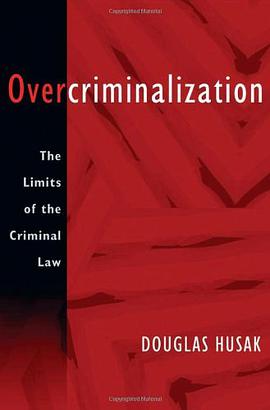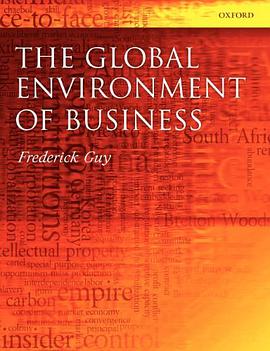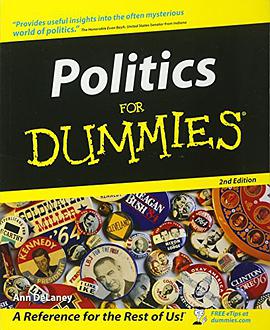

具体描述
In the US, one out of every 138 residents is incarcerated. The size of the prison population has quadrupled since 1980. Approximately 2.4% of Americans are either on probation and parole. The US has the highest rate of criminal punishment in the Western world. The problem with American criminal law, as the philosopher of law Douglas Husak and many others see it, is that there is simply too much of it. Recent years have seen a dramatic expansion in the amount of criminal statutes, and in the resulting reliance on punishment for convictions under those laws. Husak argues that this is regrettable for several reasons, but most importantly, he says that much of the resulting punishment is unjust, excessive, and disproportionate. He also claims that it is destructive to the rule of law and undermines the principle of legality. What should be done? Husak's goal in this book is to formulate a normative theory of criminalization that will allow us to distinguish which criminal laws are justified, and which are not--something he sees as essential in order to reverse the trend towards too many criminal laws.The first part of his book makes the case that there is both too much criminal law and too much punishment, and clarifies the relationship between the two using empirical data. He then provides examples of dubious criminal laws enacted by legislatures, in particular statutes on drugs possession and guns. The latter part of the book develops his theory, which establishes principles that should set limits (both external and internal to the criminal law) on what we can and should criminalize.
作者简介
Douglas Husak is Distinguished Professor of Philosophy at Rutgers University. He is the author of over one-hundred scholarly articles and six books, most notably: The Philosophy of Criminal Law (Oxford, 2010), Overcriminalization (Oxford, 2008), and Drugs and Rights (1992). He has been a Visiting Professor at several law schools and philosophy departments and specializes in philosophical issues involving criminal law. He is the current Editor-in-Chief of Criminal Law and Philosophy and a past Editor-in-Chief of Law and Philosophy.
目录信息
Acknowledgements
Chapter One: The Amount of Criminal Law
I c Too Much Punishment, Too Many Crimes.
II. How More Crimes Produce Injustice
III. The Content of New Offenses
IV. An Illustration of Overcriminalization
Chapter Two: Internal Constraints on Criminalization
I. The General Part of Criminal Law
II. From Punishment to Criminalization
III. A Right Not to Be Punished?
IV. Malum Prohibitum
Chapter Three: External Constraints on Criminalization
I. Infringing the Right Not to be Punished
II. The Devil in the Details
III. Crimes of Risk-Creation
Chapter Four: Alternative Theories of Criminalization
I. Law and Economics
II. Utilitarianism
III. Legal Moralism
· · · · · · (收起)
读后感
评分
评分
评分
评分
用户评价
跟我最近写的罪罚均衡原则路数颇合,应该早些读。均从国家暴力制约而非报应主义与功利主对立角度来理解刑罚的高度有限性。是事实强于理论细节强于说理的书,可与哲学不足互补。
评分Husak反复批评学者对过度犯罪化问题的忽视或者浅显化,意图提高讨论的水平和质量。可以将刑罚与犯罪化理论之间的关系作为主线:传统是将二者区分开,进而可以在不考虑被惩罚行为的情况下证成刑罚。Husak认为这种区分有误,主张二者具有概念上的关联性:当且仅当行为人受到国家刑罚时,行为是有罪的。以此为基础,构建极简理论(the minimalist theory):就内部限制而言,Husak提出的权利保护主张值得关注;就外部限制来说,其声称相对于Moore的单一基础更加精致化,能够解释刑罚中的state问题。这些限制性条件依然有争议,关于刑罚-犯罪的关系也值得再思考,作为犯罪化问题的sketch,确实吸引了相当一部分讨论。
评分Husak反复批评学者对过度犯罪化问题的忽视或者浅显化,意图提高讨论的水平和质量。可以将刑罚与犯罪化理论之间的关系作为主线:传统是将二者区分开,进而可以在不考虑被惩罚行为的情况下证成刑罚。Husak认为这种区分有误,主张二者具有概念上的关联性:当且仅当行为人受到国家刑罚时,行为是有罪的。以此为基础,构建极简理论(the minimalist theory):就内部限制而言,Husak提出的权利保护主张值得关注;就外部限制来说,其声称相对于Moore的单一基础更加精致化,能够解释刑罚中的state问题。这些限制性条件依然有争议,关于刑罚-犯罪的关系也值得再思考,作为犯罪化问题的sketch,确实吸引了相当一部分讨论。
评分跟我最近写的罪罚均衡原则路数颇合,应该早些读。均从国家暴力制约而非报应主义与功利主对立角度来理解刑罚的高度有限性。是事实强于理论细节强于说理的书,可与哲学不足互补。
评分跟我最近写的罪罚均衡原则路数颇合,应该早些读。均从国家暴力制约而非报应主义与功利主对立角度来理解刑罚的高度有限性。是事实强于理论细节强于说理的书,可与哲学不足互补。
相关图书
本站所有内容均为互联网搜索引擎提供的公开搜索信息,本站不存储任何数据与内容,任何内容与数据均与本站无关,如有需要请联系相关搜索引擎包括但不限于百度,google,bing,sogou 等
© 2026 onlinetoolsland.com All Rights Reserved. 本本书屋 版权所有




















